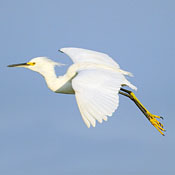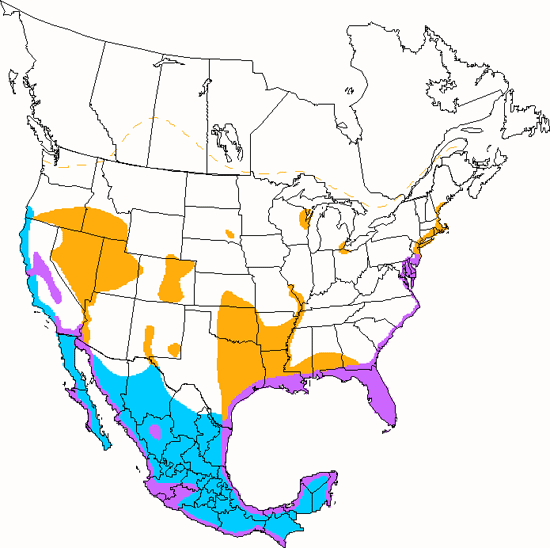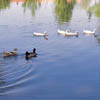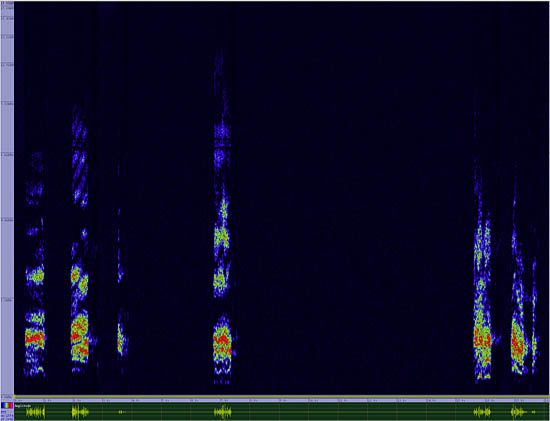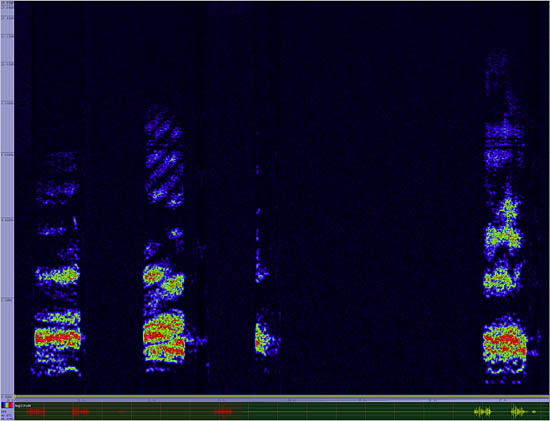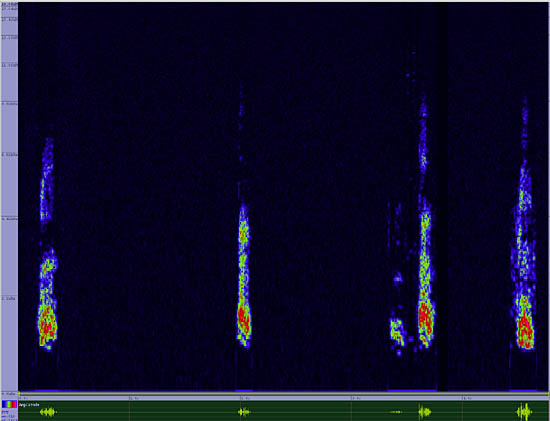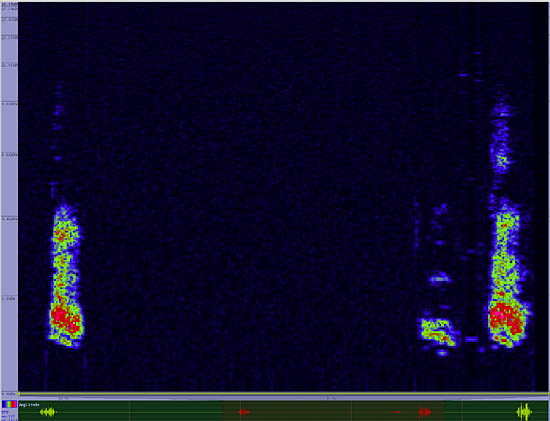Snowy Egret
Egretta thula

Long Legged Waders
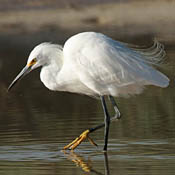
Length: 24 in. (61 cm )
The black bill, black legs and golden feet distinguish this white egret from other similar species. It is always associated with water in marshes, lakes, ponds and coastal estuaries. Often feeds in water by scaring invertebrates and fish with movements of its bright feet. Bulky stick nest is placed in colonies of other herons, cormorants and ibis, usually in tall shrubs and small trees near water. Roosts communally in isolated tree groves with other herons during the winter.
The four-digit banding code is SNEG.
Bibliographic details:
- Article: Snowy Egret
- Author(s): Dr. Biology
- Publisher: Arizona State University School of Life Sciences Ask A Biologist
- Site name: ASU - Ask A Biologist
- Date published:
- Date accessed:
- Link: https://askabiologist.asu.edu/activities/bird/snowy-egret
APA Style
Dr. Biology. (). Snowy Egret. ASU - Ask A Biologist. Retrieved from https://askabiologist.asu.edu/activities/bird/snowy-egret
Chicago Manual of Style
Dr. Biology. "Snowy Egret". ASU - Ask A Biologist. . https://askabiologist.asu.edu/activities/bird/snowy-egret
Dr. Biology. "Snowy Egret". ASU - Ask A Biologist. . ASU - Ask A Biologist, Web. https://askabiologist.asu.edu/activities/bird/snowy-egret
MLA 2017 Style
Be Part of
Ask A Biologist
By volunteering, or simply sending us feedback on the site. Scientists, teachers, writers, illustrators, and translators are all important to the program. If you are interested in helping with the website we have a Volunteers page to get the process started.

